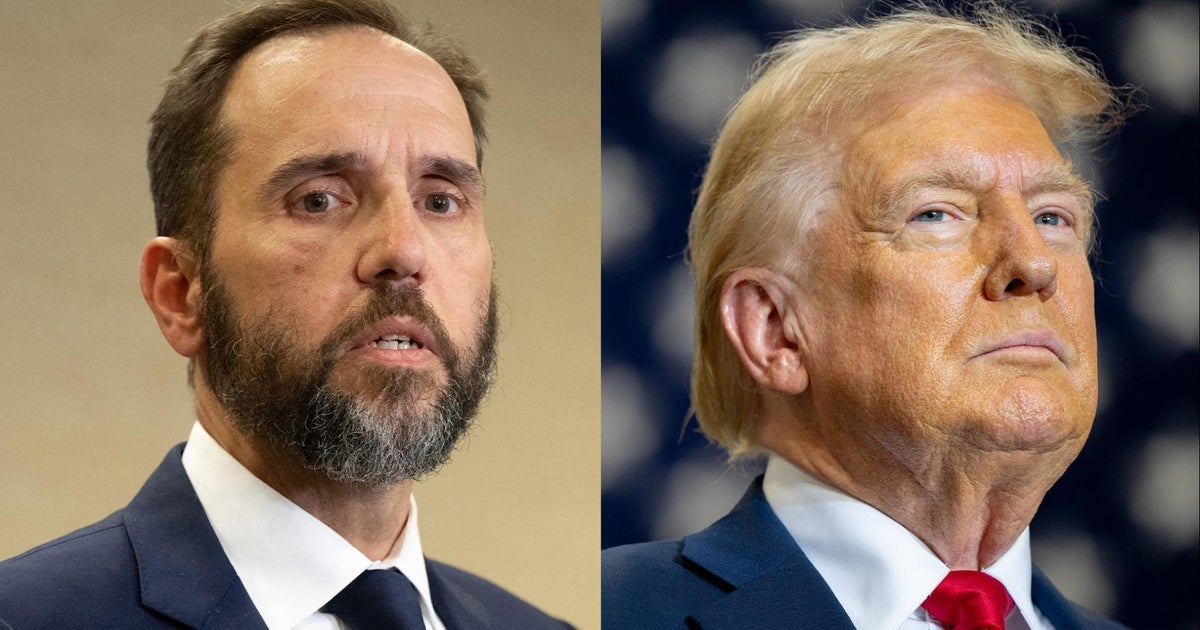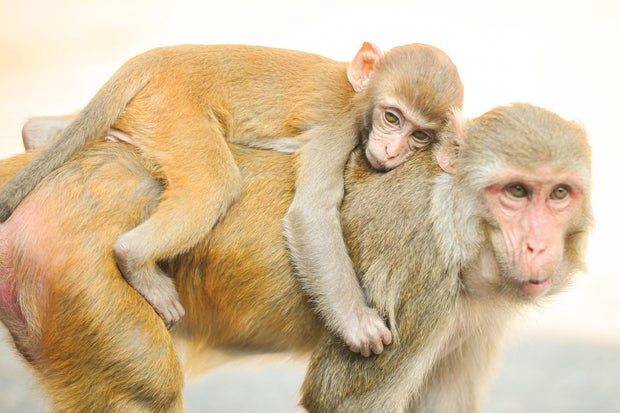CBS News
Dutch contestant Joost Klein kicked out of Eurovision hours before contest final

The Netherlands’ contestant in the Eurovision Song Contest was expelled from competition hours before Saturday’s final of the pan-continental pop competition, which has been rattled by protests over the participation of Israel.
Competition organizer the European Broadcasting Union said Swedish police were investigating “a complaint made by a female member of the production crew” against Dutch performer Joost Klein. The organizer said it wouldn’t be appropriate for Klein to participate at the event while the legal process was underway.
Though Eurovision’s motto is “united by music,” this year’s event has proven divisive. Israel’s participation has attracted large pro-Palestinian demonstrations, with protesters saying the country should be excluded because of its conduct in the war in the Gaza Strip.
Klein, a 26-year-old Dutch singer and rapper, had been a favorite of both bookmakers and fans with his song “Europapa.”
He failed to perform at two dress rehearsals on Friday, and the EBU had said it was investigating an “incident.” Dutch broadcaster AVROTROS, one of dozens of public broadcasters that collectively fund and broadcast the contest, said that as Klein came offstage after Thursday’s semifinal he was filmed without his consent and in turn made a “threatening movement” toward the camera.
The broadcaster said Klein didn’t touch the camera or the female camera operator, and called his expulsion “very heavy and disproportionate” punishment.
Jessica Gow via Getty Images
Some music lovers in the Eurovision fan park expressed dismay at the Dutch expulsion. Sven Sherman from Sweden said it was a “pity that a song which is absolutely made for Europe” is now disqualified.
“I mean, honestly, which country has done so much, many good things for Europe, like the Netherlands? So it’s really a pity and I hope next year they will be back again,” he said.
It all makes for a messy climax to an event that draws both adoration and derision with its campy, kitschy ethos and passion for pop.
Tensions and nerves were palpable in the hours before the final, where 25 acts – narrowed from 37 entrants by two semifinal runoffs – are due to perform three-minute songs in front of a live audience of thousands and an estimated 180 million viewers around the world.
Several artists were absent from the Olympics-style artists’ entrance at the start of the final dress rehearsal, though all but Ireland’s Bambie Thug went on to perform.
The Irish performer issued a statement saying the absence was due to a situation “which I felt needed urgent attention from the EBU” and telling fans: “I hope to see you on the stage later.”
Jens Battner via Getty Images
French singer Slimane cut short his song “Mon Amour” at the dress rehearsal to give a speech urging people to be “united by music, yes – but with love, for peace.”
The offstage drama is overshadowing a competition whose entries range from emotional to eccentric. They include the goofy 1990s nostalgia of Finland’s Windows95man, who emerges from a giant onstage egg wearing very little clothing. Bambie Thug summons witchy spirits onstage and has brought a scream coach to Malmo, while Spain’s Nebulossa boldly reclaims a term used as a slur on women in “Zorra.”
The favorites include Swiss singer Nemo – who would be the first nonbinary Eurovision winner if their operatic song “The Code” tops the voting – and Croatia’s Baby Lasagna. His song “Rim Tim Tagi Dim” is a rollicking rock number that tackles the issue of young Croatians leaving the country in search of a better life.
Dean Vuletic, an expert on the history of the contest, said that despite the contest’s reputation for disposable bubblegum pop, Eurovision often tackles “political and social issues such as feminism, European integration, gender identity.”
Sometimes, though, songs run afoul of the contest’s ban on openly “political” statements. Eurovision organizers told Israel to change the original title of its song, “October Rain” – an apparent reference to the Oct. 7 Hamas attack that killed about 1,200 people in Israel and triggered the war in Gaza.
Israeli singer Eden Golan has shot up the odds since performing the power ballad, now titled “Hurricane,” in Thursday’s semifinal. Golan faced some booing at dress rehearsals, but was voted into the final by viewers around the world.
Jens Battner via Getty Images
Israeli Prime Minister Benjamin Netanyahu praised 20-year-old Golan for performing despite “contending with an ugly wave of antisemitism.”
Pro-Palestinian protesters argue that Israel shouldn’t be allowed to take part amid a war that has killed almost 35,000 Palestinians, according to the health ministry in the Hamas-run territory.
Thousands of people marched for the second time this week on Saturday through Sweden’s third-largest city, which has a large Muslim population, to demand a boycott of Israel and a cease-fire in the seven-month war.
A few Palestinian flags were waved in the auditorium during Saturday’s Eurovision dress rehearsal, in defiance of a ban on flags other than those of competing nations.
The competing musicians are feeling the pressure, inundated with messages and abuse on social media and unable to speak out because of the contest rules. Italy’s contestant, Angelina Mango, made a statement by walking into the Eurovision media center on Friday and performing John Lennon’s “Imagine” as dozens of journalists gathered around her.
Swedish singer Loreen, last year’s Eurovision champion – and one of only two performers to win the contest twice – said world events were “traumatizing” but urged people not to shut down the “community of love” that is Eurovision.
“What heals trauma … Does trauma heal trauma? Does negativity heal negativity? It doesn’t work like that,” she told The Associated Press. “The only thing that heals trauma for real – this is science – is love.”
CBS News
In Trump 2020 election case, Jack Smith asks judge for time to determine “appropriate course”

Washington — Special counsel Jack Smith has asked the federal district court in Washington to forego current deadlines in the case against President-elect Donald Trump related to the 2020 election to allow prosecutors more time to assess the “unprecedented circumstance” arising out of his election Tuesday to serve a second term in the White House.
Smith told U.S. District Judge Tanya Chutkan in a one-paragraph filing that his office would like additional time to “determine the appropriate course going forward consistent with Department of Justice policy.” He said prosecutors will provide more information to the court by Dec. 2.
Trump defeated Vice President Kamala Harris in the race for the White House on Tuesday and will be sworn-in for a second term on Jan. 20. As a result of Trump’s victory, the Justice Department and special counsel’s office are discussing how to wind down the ongoing federal prosecutions against Trump.
The Justice Department has a longstanding policy against prosecuting a sitting president.
Citing the outcome of the election and Trump’s upcoming inauguration, Smith told the court that the deadlines in the pretrial schedule set by Chutkan should be tossed out “to afford the government time to assess this unprecedented circumstance.”
Trump is facing four federal charges in the case arising out of what Smith alleges was an unlawful scheme to subvert the transfer of power after the 2020 election. He pleaded not guilty and has denied wrongdoing.
Proceedings in the case were halted for months as Trump pursued claims that he was immune from federal prosecution all the way up to the Supreme Court. The high court ruled in July that former presidents cannot face charges arising from official actions taken while in the White House.
The case returned to Chutkan in August, and a grand jury returned a new indictment against Trump that narrowed the allegations against him to comply with the Supreme Court’s ruling. The two sides have been arguing in court papers about whether the new charges can stand.
CBS News
Nov 8: CBS News 24/7, 10am ET

Watch CBS News
Be the first to know
Get browser notifications for breaking news, live events, and exclusive reporting.
CBS News
What we know after 43 monkeys escaped a South Carolina research facility

More than 40 monkeys escaped from a research facility in South Carolina on Wednesday, prompting warnings for nearby residents to secure their doors and windows. The fugitive monkeys had not been captured as of Friday morning.
Here is what we know so far:
Where exactly did the monkeys escape in South Carolina?
The primates broke loose from Alpha Genesis in Yemassee, Beaufort County in South Carolina.
The company confirmed 43 rhesus macaque primates escaped from an enclosure at one of the company’s facilities.
The Yemassee Police Department said on Thursday that traps with bait were set up and thermal imaging cameras were being used in an effort to capture the monkeys.
“Residents are strongly advised to keep doors and windows secured to prevent these animals from entering homes,” police said. “If you spot any of the escaped animals, please contact 911 immediately and refrain from approaching them.”
How did the monkeys escape the research facility?
Greg Westergaard, CEO of Alpha Genesis, told CBS News on Thursday that a caretaker inadvertently failed to secure a door at the enclosure, allowing the monkeys to roam free.
“It’s really like follow-the-leader. You see one go and the others go,” he said. “It was a group of 50 and 7 stayed behind and 43 bolted out the door.”
He told CBS News on Friday that while they have not captured any of the monkeys, they are staying close to the facility.
“They’re just being goofy monkeys jumping back and forth playing with each other,” he said. “It’s kind of like a playground situation here.”
Westergaard said the company has put out baited traps but the monkeys are not going inside them yet.
“They’re jumping down and taking the food and then jumping back up on the fence and the tree line,” he added. “They’re watching us the same way we’re watching them.”
He acknowledged that it would be a long process to get them back and that they didn’t want to chase the monkeys because that would spook them and make them run away.
“We’ve got them very close,” Westergaard said. “This is all like what we want to see.”
What kind of monkeys are they?
The monkeys that escaped are rhesus macaque primates, which have brown fur with red faces and ears. They have close-cropped hair on their heads, which accentuates their very expressive faces.
The rhesus macaques are Asian, Old World monkeys that are primarily found in Afghanistan, Pakistan, India, Southeast Asia and China.
Md Rafayat Haque Khan/ Eyepix Group/Future Publishing via Getty Images
Rhesus macaques were imported to the U.S. in the 1970s for biomedical research in laboratories, according to the New England Primate Conservancy.
Rhesus macaques are “bold, extremely curious, and adventurous monkeys” and the species is “highly adaptable to coexisting alongside humans,” the conservancy says.
The rhesus macaque’s typical diet includes roots, fruit, seeds, and bark as well as insects and small animals.
What were they using the monkeys to test?
According to its website, Alpha Gensis breeds monkeys and provides “nonhuman primate products and bio-research services” across the globe. The company’s clinical trials reportedly include research on progressive brain disorders.
Local authorities said Thursday that the escaped primates were “very young females weighing approximately 6-7 lbs” and had never been used for testing due to their age.
Alpha Genesis says its staff of veterinary technicians and animal specialists work with cynomolgous, rhesus and capuchin monkeys.
The Post and Courier newspaper reported last year that Alpha Genesis won a federal contract to oversee a colony of 3,500 rhesus monkeys on South Carolina’s Morgan Island, known as “Monkey Island.”
The U.S. Centers for Disease Control and Prevention confirmed in a statement that the monkeys were previously living on Morgan Island as “free-range monkeys” and were brought to the Alpha Genesis facility “for conditioning to be around people.”
The facility is registered with the CDC as a nonhuman primates importer, which means it “must meet standards for the importation, quarantine, and use of NHPs,” the agency said.
The CDC added that “the risk to the public is low as long as people do not approach or come in contact” with the monkeys.
How often do research monkeys escape?
This is not the first time primates have escaped from Alpha Genesis.
Eight years ago, 19 primates escaped from the company’s facility but were recaptured about six hours later.
CBS affiliate WCSC in Charleston at the time reported that local officials said the escapes were not infrequent but generally the monkeys return to the compound because they know that is where there is food.
“Every couple of years we’ll have one or two that get out. We have never had this many get out,” Westergaard told CBS News on Friday.
Last year in Pennsylvania, dozens of lab monkeys escaped after a truck carrying 100 of the animals crashed. All the primates were later accounted for.










